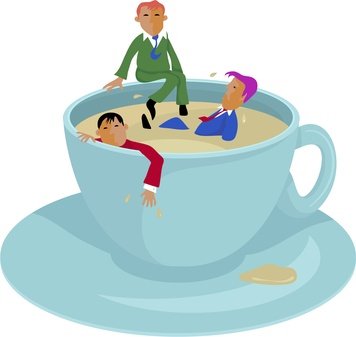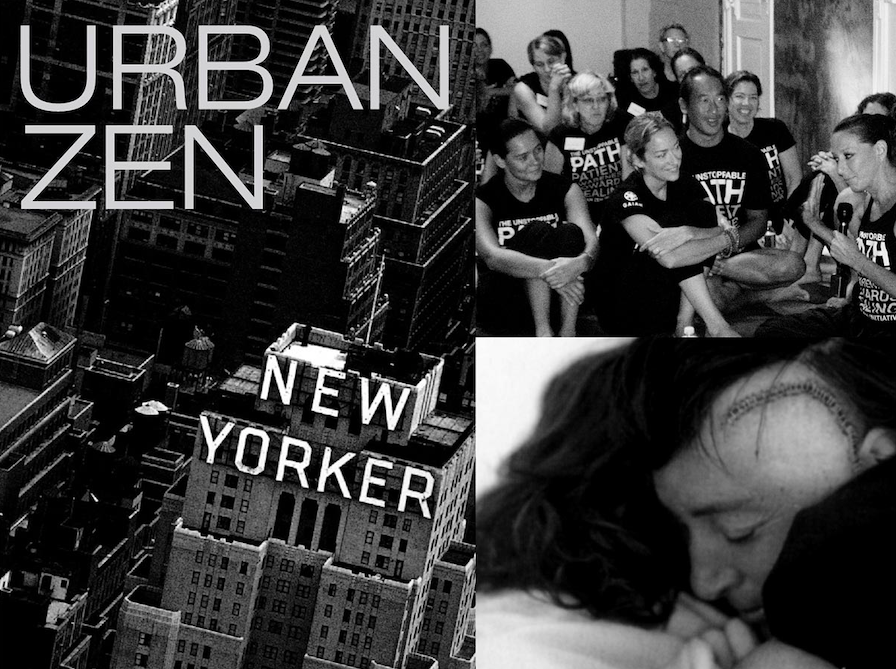
Well+Being Holistic Mental Health
“Emotional Health & Wellness Tips From The Therapy Couch And Other Places”

Essential Oils For A Balanced Life
For nearly two decades, I have received the benefits of essential oils in my health and well-being and at home. I continue learning and refining my understanding of these healing plants and their chemistry, and how they powerfully assist healing and balance. Essential oils can be used for a range of physical and emotional wellness applications, either single oils or complex blends all have an impact at the cellular level. Many integrative therapists and wellness practitioners artfully add aromatherapy to enhance their yoga, ayurvedic or Reiki practice. Essential oils are usually administered by one of three methods: diffused aromatically, applied topically, or taken internally as dietary supplements. I love these oils and use them daily in my life and to enhance my personal yoga practice.

About Therapy For Phobias
As a NYC psychotherapist in private practice, I treat people who struggle with phobias. Phobias are a common form of psychological disorder and distress. Generally defined as irrational fears about objects or situations, people tend to see their phobias as unreasonable, but feel incapable of giving up the fear or confronting the situation head on. Not all phobias are severe enough to impact the quality of one's life, but some are. There are many ways to treat a phobia, and some treatment methods are much more effective than others. Most people have certain things or situations that create discomfort, but are still able to carry on with the daily activities of life. Individuals with phobias or a specific phobia have intense, irrational fears, and will experience great distress that disrupts their life, avoiding the object or situation altogether. Phobias can be categorized into three types: Simple, or situational, social phobias and agoraphobia.

Coping With Relationship Heartbreak
Breakups are painful. The reasons for the relationship split seem to matter less than the fact that your world has changed and all kinds of uncomfortable feelings and emotions are being triggered. You can learn from this experience and come through it wiser and stronger, and hopefully, with a heart open enough to receive love and hope for the future. As a NYC psychotherapist in private practice, struggling after a break up is a common reason people seek counseling and therapy.
Even though the relationship no longer works, why do breakups hurt so much? When marriages or relationships end, it is not just about grieving the loss of the connection, but the end of shared hopes and dreams. Hope is an important aspect of early romantic relationships. Couples mourn the hope for the future as well as the commitment of shared goals and dreams.
Other important losses include one's identity, physical and sexual intimacy, shared hobbies and interests, relationships with friends and extended family, a physical move or the sale of a home, financial stability, individual and shared responsibilities, and if children are involved, a significant disruption in their lives.
Starting over can be scary. It is normal to wonder if you will ever find love or another partner again as well as other future uncertainties. Many feel that staying with what they know, even if it's an unhappy partnership, is better than being alone. It's important to remind yourself, that it is possible to move on to find happiness either alone or with someone else. Healing takes time and recovery requires patience and treating yourself with kindness and compassion.

Calm Discussions, Cool Heads
Couples or those working with others in partnerships or other kinds of relationship dyads often need skills and tips on how to enter a discussion, and the best strategies for keeping it calm, and ultimately successful. Beginning an important discussion can be fraught with conflict, apprehension and fear. What follows are some simple tips to keep the conversation constructive. While the goal might be to make a point, have your point taken seriously, right a wrong or solve a problem, many conversations devolve into screaming matches. What follows are some simple communication pointers to keep important discussions from spiraling out of control.

Essential Oil Therapy As Medicine
Essential oil therapy can be used for a range of physical and emotional wellness applications, either single oils or complex blends all have an impact at the cellular level. Many integrative therapists, EMDR therapists, somatic psychotherapists and wellness practitioners artfully add essential oil therapy to enhance their trauma release sessions, yoga therapy and Reiki practices.
Essential oils are usually administered by one of three methods: diffused aromatically, applied topically, or taken internally as dietary supplements. I love these oils and use them daily in my life and to enhance my personal yoga practice. When choosing oils, it’s important to work with a company that offers pure therapeutic grade and optimally-sourced Oils.
How do we get oils quickly into the system? Through the olfactory nerve, to the pineal, pituitary, amygdala. When you breathe an oil into the system, and through the nasal cavity, it is first picked up by the neurons in the olfactory system, between the eyes at the top of the sinus cavity. Those oil molecules are carried within milliseconds into the center of the brain. Research has shown that the inhalation of Essential Oils into the mid-brain system will cause a secretion of antibodies, as well as endorphins and neurotransmitters. This process directly impacts the immune system in positive ways.

Engage Your Vagus Nerve To Experience Enhanced Relaxation And Restorative Sleep
Concerns about the long-term impact of chronic stress, depression, anxiety and sleep deprivation is a topic of concern for many of my coaching and therapy clients. A few stressful, sleepless nights can easily spiral into a regular problem as clients begin to develop a negative relationship with bedtime and sleep. In the field of medicine and psychology we call this psychophysiologic insomnia or learned insomnia. Many will seek the help of a psychiatrist to obtain prescription medications in an effort to break the cycle. Not a bad option in the short-term, but less than ideal as a long-term solution.
Most mental health professionals who work with insomnia will always recommend lifestyle modifications and attempts at simple changes in the environment first. Before we move to information about engaging your vagus nerve and the relaxation response, let's clear the path to create an optimal environment for sleep.

Nurse, Heal Thyself
(by Kim Seelbrede, originally posted on urbanzen.org)
As snowflakes shimmered against the backdrop of the mountains, student nurses from around the country gathered to participate in the 59th annual National Student Nurses Association (NSNA) convention held in Salt Lake City. Urban Zen Integrative Therapy (UZIT) sessions were offered to the student nurses in The Sanctuary, which was generously provided by Johnson & Johnson. This sublime healing space allowed many nurses to experience, for the first time, the exquisite healing modalities offered by the Urban Zen Integrative Therapists. Introducing nurses to the concept of self-care was our mission; powerful, moving and comforting were but a few of the words participants used to describe their restorative sessions.
Maintaining calm in the chaos was no easy feat as hundreds of nurses waited patiently for their sessions. Once inside the soothing environment, students were given permission to “let go and receive” the self-care techniques

Reclaim Your Identity By Healing Your Trauma
We continue to learn about the impact of trauma, and what we do know is that trauma changes the brain. We also know that the brain has tremendous capacity to heal and re-wire. As you continue to think, talk, re-tell and act on your experience(s), you reinforce your attachment to what happened, which exacerbates your symptoms and you loop on the upsetting memory and trauma responses. The goal of successful trauma healing is to free your nervous system from the patterns of trauma symptoms and regain freedom so you can move forward with your life and dreams.
The body is designed to heal. We now know that the brain has an amazing capacity to heal by creating new neural pathways. This process is called neuroplasticity. When people are finally able to regain control over their thoughts, behaviors, responses and lives, the brain's limbic system, parasympathetic and vagus nerve system can normalize.

Try A Little Mindfulness In Your Daily Life
Many of my therapy and coaching clients are interested in learning holistic ways to reduce and manage the symptoms of anxiety, depression, addictions and eating disorders, and many in particular, are interested in some form of meditation. They are often motivated by media stories or recent studies that document the proven benefits of meditation, and are interested in natural ways to gain symptom relief. Peer review studies are confirming that this approach, in addition to specific lifestyle modifications is a highly effective approach to managing and controlling anxiety, panic disorder and mild depression.
As a psychotherapist trained in traditional and non-traditional methods, I have always encouraged interested clients to give non-traditional techniques such as meditation and mindfulness a try. Many are unwilling, for a variety of reasons, to use medication, and for clients with this orientation, using a multi-modal approach combining cognitive therapy, cognitive-behavioral therapy (CBT), EMDR therapy and mindfulness meditation can provide much needed relief.

Successful Couples Do (And Don’t Do) These Things
Couples who create successful and mutually satisfying relationships often have a formula for success. These dynamic couples have some important skills, and consistently make thoughtful, conscious choices that lead to enhanced closeness and connection.
They do (and don’t do) certain things, which is why they enjoy a stable and robust relationship. John and Julie Gottman of the Gottman Institute, known for their extensive relationship research, would call these smart couples "masters" of relationships.
If you desire a dynamic and loving relationship, you may want to consider being mindful of the following elements that create a loving and successful relationship.
Let's begin with what NOT to do:

DBT Skills: Observe Your Thoughts, Reduce Your Anxiety
Find a comfortable spot to sit, either seated or lying down. Take a moment to focus on softening your body and releasing any tension in your shoulders. Close your eyes.
Focus your attention on your breathing. Observe what it feels like to be in your body, in this moment, as you slowly breathe in and then breathe out. As you spend a few minutes here, Imagine that you are riding the wave of your own breath. You feel safe.
Next, shift your attention to your thoughts. Begin to notice your thoughts, remembering that they are just thoughts. Nothing to do in this moment but simply observe. If you'd like, you can imagine that your thoughts pass by on a cloud, or perhaps, these thoughts are gently carried along on a stream.
No need to chase them away or hold on to them. Simply watching. They may even disappear on their own. If you find that you've become fixated on a particular thought or demand, notice how or what took you away from just observing and noticing, then gently bring your attention back to awareness and any thoughts. It's normal to find yourself becoming stuck with a thought. Your only task is to bring your awareness back to observation.

Lifestyle Changes To Reduce Chronic Pain, Inflammation And Depression
As a holistic psychotherapist in New York City, I'm always curious about the exquisite interplay between the mind and body, especially when patients present with symptoms that overlap. Women and men alike who seek therapy or consultation frequently report symptoms that seem to overlap with depression such as: fatigue, lethargy, insomnia, body aches, and sleep disturbances, decreased social activity, lethargy, decreased libido, appetite changes, and anhedonia. The picture, and the treatment plan, for these individuals is not always immediately clear. As a society, we are quick to prescribe an antidepressant or medication ignoring the root cause of suffering. Psychotherapists, when they are oriented to a mind-body connection, are in a perfect position to take a comprehensive approach to helping clients improve both emotional and physical well being. And this is where a holistic psychotherapist can help you heal along 10 or so mutually interdependent dimensions: emotional, environmental, financial, intellectual, physical, professional, sexual, social, health and cultural. Every aspect of wellness can affect a person's life.
What do we know about depression and chronic inflammation? Studies show a link between depression and inflammation that is bidirectional, that is, depression contributes to inflammatory responses in the body and inflammatory processes promotes depression. Inflammation is present in a number of disorders and systemic diseases, including: diabetes, metabolic syndrome, cardiovascular disease, rheumatoid arthritis, multiple sclerosis, asthma, chronic pain, and psoriasis. These chronic health conditions also put individuals at an increased risk for depression, according to The American Journal of Psychiatry.

Your To-Do List Is Making You Miserable
While reading this thoughtful article from Lifehacks, I was reminded of how much pride we take in our daily to-do lists and particularly the emphasis our society puts on productivity. Busy, busy people we are, and especially, successful, hyper-productive New Yorkers who thrive on getting it done. But what if states-of-being like happiness or feeling content could actually be achieved if you made a habit of practicing the not-to-do list more regularly? So many people reach out for therapy and counseling seeking a path to happiness. They rarely consider all the ways that their habits and patterns actually make make miserable. The post suggests that tallying up how much we actually do in our daily lives that makes us “unhappy” is a place to start. As you read the list of misery-making habits, ask yourself “how are these behaviors actually serving me?” That’s a goal of therapy for many—to get to the root of misery by unearthing the source of suffering, which leads to a less rigid and restrictive existence. Some helpful psychotherapy techniques to address anxiety, depression and problem patterns with your therapist are: Cognitive Therapy for depression; CBT to change behaviors; DBT to understand, regulate emotions, communicate effectively and learn more adaptive coping skills; Mindfulness and (ACT) Acceptance Commitment Therapy to radically accept “what is” in your life and Psychodynamic/Psychoanalytic Psychotherapy to explore the unconscious should you care to. Please enjoy… Ten Recipes For Guaranteed Unhappiness - Lifehacks – Medium

Finding The Middle Path For Enhanced Life-Balance
Are you someone who tends to think in absolutes because ambivalence feels challenging? Ambivalence is the simultaneous existence of opposite feelings. Most of us dislike it because it is an uncomfortable state. We want to feel one way or the other about someone or something. Your life will improve greatly by learning to tolerate ambivalence and by using Middle Path as a guide. What follows are tips for individuals who struggle with extremes and "all or nothing" thinking:
1. Be open to seeing things from different angles. There can be many ways to solve a problem. Do some research and investigate how other people have solved similar problems. Who do you admire who may have some good skills in this area? Don't be afraid to ask for help.

Substance Abuse And The Co-Occurrence Of Social Anxiety
Shyness and social anxiety is thought by experts to exist on a continuum, however, efforts to cope with this anxiety challenge can be extremely disabling. For many, social anxiety symptoms leads to avoidance of situations as well as using and abusing substances in an effort to cope. The co-occurrence of substance abuse, particularly alcohol abuse, is common among people who have social anxiety disorder according to the Anxiety and Depression Association of America.
Many diagnosed with this anxiety disorder begin to rely on alcohol as a coping mechanism to relieve social discomfort. While individuals may not experience full relief from their symptoms by using alcohol or drugs, they may experience enough relief to enable them to get through difficult social situations, which is reinforcing. Some studies report that the average lifetime prevalence of alcoholism among individuals with social anxiety disorder, as well as depression, may be as high as 20 percent. Many mental health professionals and addiction specialists would argue that this number is low.

DBT Skills: Practice Radical Acceptance
Develop Radical Acceptance From Within...
This week, as we reviewed distress tolerance and handling difficult emotions in my eating disorder seminar, I was reminded of the concept of "radical acceptance."
What Does Radical Acceptance Look Like?
1. Learning to develop complete acceptance that comes from within.
2. Understand that painful emotions are a part of life—we all have them, they are normal and to be accepted.
3. Stop fighting (both emotionally and behaviorally). Learn to accept difficult emotions as a normal part of being human.

Urban Zen Center: Dr. Mark Hyman Speaks On Diabesity
Urban Zen was delighted to hear that Mark Hyman, MD considers the Urban Zen Center to be his second home, and we were thrilled to welcome him back to the studio. On October 30, 2010, the center was filled with guests eager to learn more about his approach to living a disease free life. The day long workshop was dedicated to the topic of “Diabesity” which is, as Dr. Hyman describes, an epidemic health condition that is metabolic in nature and ranges from mild blood sugar imbalance to full-blown diabetes. It is such a health concern that military leaders have labeled it a “threat to national security.” Workshop guests were surprised to learn that one out of every three volunteers in the military is obese.
The statistics are even more sobering in the general population with an alarming obesity rate of nearly three out of four Americans. Dr. Hyman added that “our children may be the first generation that will not outlive their parents.” What would it take to turn things around so that our kids can grow old? Dr. Hyman’s sensible approach to health reminded us what we probably already knew—that lifestyle treatments and a whole systems approach to chronic disease IS the cure. So, if you think you can’t reverse the problem you are wrong. The trouble with conventional medicine is that we treat the symptoms, not the root cause according to Dr. Hyman.

Finding Therapy
You’ve finally made the decision to get help for your self or your relationship, but the process feels daunting and overwhelming. If you are contemplating therapy but confused by your many options, you might find the following article from The The Huffington Post helpful. While it is not a complete offering of the many types of therapies and schools of thought offered, it certainly gives a snapshot of the major types of therapy such as: Psychodynamic Psychotherapy, CBT, Group Therapy, Family Therapy and DBT Therapy. The article also describes the types of therapy that are a good fit for the concerns you bring to counseling. For instance, if you are a couple in experiencing relationship distress, you will want to work with a couple that has relationship training. If you find yourself engaging in self-destructive, self-sabotaging behaviors, psychoanalytic therapy can help you gain insight into your unconscious that drives some of these behaviors. Websites such as Psychology Today lists many local therapists who offer brief, free consultations to help you decide and determine if the therapist is a good “fit” for your particular needs. Sometimes a paid consultation with a licensed psychotherapist or psychologist can help steer you in the right direction towards the kind of therapist and style of psychotherapy that would be the most useful for your individual needs. Ultimately, finding a therapist with whom you can

Urban Zen Center: How To Avoid The Epidemic Of Obesity And Diabetes
A week ago in the heart of the West Village, the Urban Zen Foundation welcomed the return of functional medicine expert Mark Hyman, MD. The workshop focused on the fast emerging problem in America: obesity and diabetes. Dr. Hyman uses the term “Diabesity” to describe a condition that has become epidemic (nearly three out of four Americans are obese) with serious health consequences ranging from mild blood sugar imbalance to full-blown diabetes.
The Scary Truth
By 2050 one in three Americans will have diabetes. Insulin imbalances, elevated cholesterol, high blood pressure, and high triglyceride levels are a few of the serious health concerns that are metabolic in nature. Left unchecked, these conditions point directly to diabetes, heart disease, stroke, dementia, nerve damage, blindness and even cancer.

Conquering Food Addictions With Dr. Neal Bernard
On this crisp Fall day, the Urban Zen Center welcomed Dr. Neal Barnard to share the science behind food addictions, and his solution of a plant-based (vegan) diet to control and reverse many chronic health problems, including food addiction. Winning Weight Battles And Conquering Cravings was the theme of the day as guests filled the stunning zen-like space. The six-hour workshop offered just the right balance of nutritional wisdom and delicious samples of the sweet and savory foods that promise to help heal our bodies. Can low fat, nutrition-dense food choices also be delicious? Absolutely, and my fellow attendees would agree.
The breeze from the garden was invigorating as the indoor space filled with the aroma of culinary delights that included kale and pear smoothies, vegan quesadillas and lentil stew on a bed of quinoa. With such a diverse group of guests, it was inevitable that someone would ask, “So what’s for dessert?” Not to disappoint, nutrition experts and chefs Christine Waltermyer, Jill Eckhart and Emily Richard served a raspberry chocolate mousse made with tofu. It was refreshing, (okay, pretty amazing, and I’m tofu-tolerant, not really a fan!).

